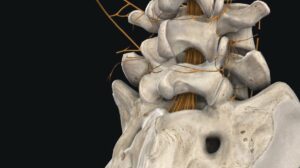NEW YORK (Reuters Health) – A combination of drugs designed to prevent pain, distress and physiologic instability in premature infants being intubated works better than premedication with morphine, a Scandinavian group has shown.
In fact, “Because of circulatory changes and neurophysiological depression found during and after the intubation in infants given morphine, premedication with morphine should be avoided,” the investigators advise in their paper in the Journal of Pediatrics online July 28.
Dr. Elisabeth Norman, at Lund University Hospital in Sweden, and colleagues point out that endotracheal intubation is painful and leads to increased blood pressure and intracranial pressure if it’s performed without analgesic and sedative drugs. However, most such agents cause hypotension and may have adverse cerebral effects.
As an alternative to traditional morphine use before intubation, the team developed a “rapid sequence induction” (RSI) premedication regimen of short-acting agents: the anticholinergic glycopyrrolate to prevent airway secretions, thiopental for sedation, suxamethonium for neuromuscular blockade, and remifentanil for analgesia.
The researchers compared this RSI strategy to IV morphine and atropine administration in a randomized trial involving 34 premature infants requiring semi-urgent intubation. After premedication, all intubations were performed nasally by experienced neonatologists, the report indicates.
The main outcome measure was a “good intubation condition,” defined as a score of 10 or less on a combination assessment of ease of laryngoscopy, vocal cord status, cough, jaw relaxation, and limb movement.
This target was documented in 16 of 17 infants in the RSI group compared with 1 of 17 in the morphine group, according to the report. Intubation times in the two groups were 45 seconds versus 97 seconds.
Plasma cortisol levels and pain scores were similar in both groups. However, the morphine group exhibited a significant decrease in heart rate, and the area-under-the-curve for the subsequent decrease in arterial blood pressure was 7-times larger than for the RSI group.
Furthermore, neurophysiologic results based on amplitude-integrated EEG and regional cerebral oxygenation/perfusion monitoring indicated ongoing CNS depression for up to 6 hours in the morphine group, Dr. Norman and colleagues found.
Premedication drugs for intubation, they commented, “should have a rapid onset, short duration, and be effective with few adverse effects. Our RSI combination fulfilled these requirements.”
However, they cautioned “A multidrug regimen always carries risks, and future research should aim at RCTs investigating new drugs with both sedative and analgesic effects.”
J Pediatr 2011.




